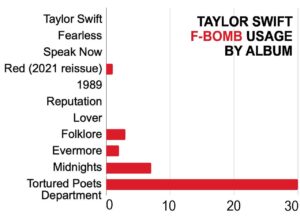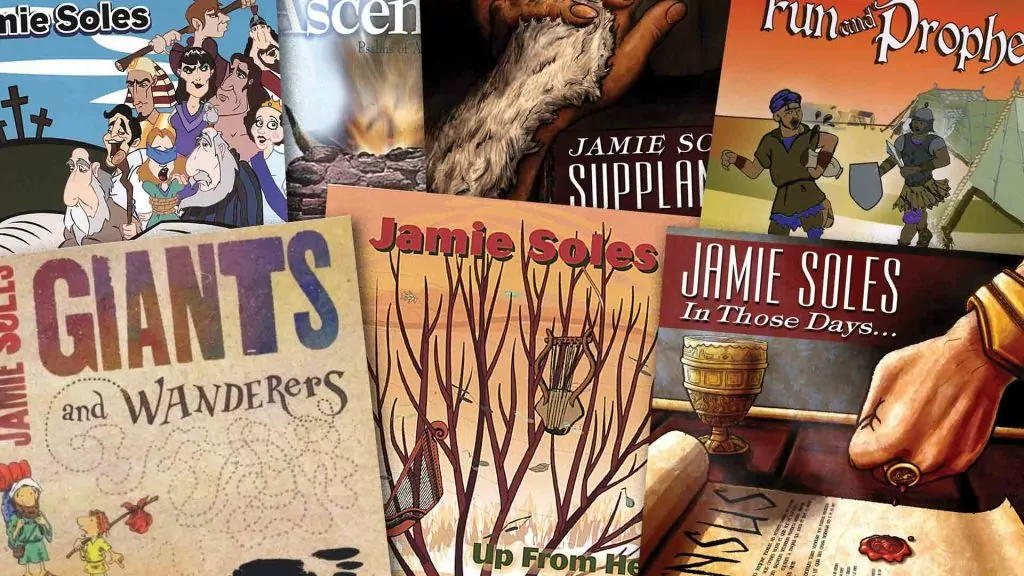
Music, News
Taylor Swift’s explicit evolution
Last week, Taylor Swift released her 11th studio album, The Tortured Poets Department , comprised of 16 songs. Hours later, she dropped part two of the album consisting of another 15 songs called The Anthology, creating a double album. In this latest effort, Swift says the f-word more than her first ten albums combined – one Reddit user says, “If you extrapolate this data, five albums from now she will have to release an album that says roughly 24,000 times.”
, comprised of 16 songs. Hours later, she dropped part two of the album consisting of another 15 songs called The Anthology, creating a double album. In this latest effort, Swift says the f-word more than her first ten albums combined – one Reddit user says, “If you extrapolate this data, five albums from now she will have to release an album that says roughly 24,000 times.”
Swift’s earlier music had been known for clean pop love songs, her country music devoid of explicit language and even incorporating biblical themes, such as in her 2007 song “Christmas Must Be Something More,” where she sings, “So here's to Jesus Christ who saved our lives.” That made her a favorite of many parents. That said, even her 2006 self-titled debut album, with its focus on cheating boyfriends, and Taylor longing after another girl's boyfriend, wasn't kid-appropriate.
However, her latest album takes a darker turn, featuring explicit sexualized language and blasphemous lyrics mocking Christ’s death and resurrection. In her song “Guilty as Sin,” she sings,
What if I roll the stone away?
They’re gonna crucify me anyway
What if the way you hold me is actually what’s holy?
Another song, “But Daddy I Love Him” bashes Christians, calling them:
…the most judgmental creeps
Who say they want what's best for me
Sanctimoniously performing soliloquies I'll never see
The rest of the material can be seen through a long X thread that asks “Is this the music you want your kids listening to?” Young people are impressionable, so it’s crucial to be mindful of the messages they’re exposed to.
Despite the album’s title, Swift is not a tortured poet; rather, she is praised by millions of fans worldwide. With a significant influence, especially on young girls, Swift’s dark turn is one parents need to know about. This is not the Taylor Swift of ten or fifteen years ago.
Train up a child in the way he should go; even when he is old he will not depart from it (Proverbs 22:6).


















